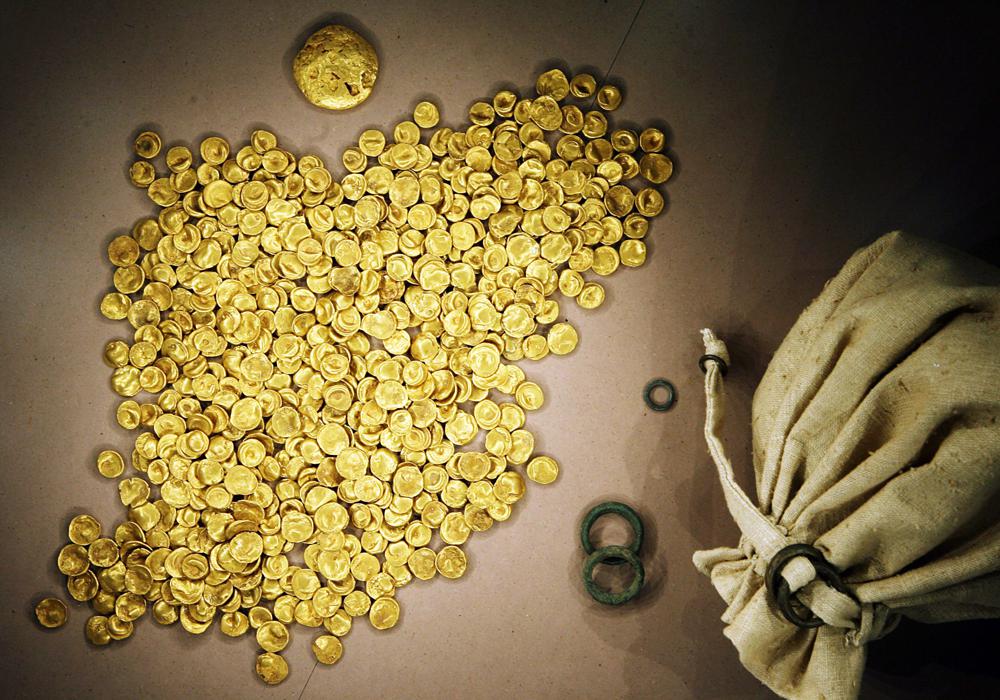World
Thieves Make Off With US$1.65 Million in Celtic Gold Coins

Officials said Wednesday that thieves who broke into a German museum and stole hundreds of ancient gold coins worth US$1.65 million got in and out in 9 minutes without raising the alarm, indicating that the heist was the work of organized criminals.
Police have launched an international search for the gold thieves and their loot, which included over 480 Celtic coins and a lump of Celtic gold discovered in 1999 during an archeological dig near the modern-day town of Manching.
The deputy head of Bavaria’s Police, Guido Limmer, said communication cables were severed at a telecommunications hub about a kilometre from the Museum in Manching on Tuesday at 1:17 a.m. (0017 GMT), knocking out communications networks in the region.
According to Limmer, the museum’s security systems recorded a door opening at 1:26 a.m., and the thieves fled at 1:35 a.m. The thieves smashed open the display cabinet and scooped out the treasure during those nine minutes.
Limmer said there were “similarities” between the Manching gold heist, the recent thefts of priceless jewels in Dresden, Germany, and a large gold coin in Berlin. Both have been linked to a Berlin-based crime syndicate.
“We can’t say whether there’s a link,” he added. “We are in contact with colleagues to investigate all possible angles.”
 Gold Heist Professionals
Gold Heist Professionals
Markus Blume, Bavaria’s minister of science and arts, stated that evidence pointed to professional work.
“You can’t just march into the museum and take a treasure with you,” he told AP. “It’s highly secured, and as a result, there’s a suspicion that we’re dealing with organized crime.”
However, officials admitted that there were no guards at the museum overnight.
Rupert Gebhard, director of the Bavarian State Archaeological Collection in Munich, deemed an alarm system adequate security.
Gebhard stated that the hoard was extremely valuable to the Manching community and European archaeologists.
The bowl-shaped coins, which date back to around 100 B.C., were made from Bohemian river gold and demonstrate how the Celtic settlement at Manching had connections throughout Europe, he said.
Gebhard estimated the treasure’s value to be US $1.65 million.
The archaeologists hope the gold coins will remain in their original condition and reappear again. He said that they are well-documented and would be difficult to sell.
The worst option, melting down the Celtic gold, would be a total loss for us,” he said, noting that gold value would only be around 250,000 euros.
According to Gebhard, the trove’s size suggested it could have been “a tribal chief’s war chest.” It was discovered inside a sack buried beneath building foundations, and it was the largest find made during an archaeological excavation in Germany in the twentieth century.
Limmer, the deputy police chief, stated that Interpol and Europol have been notified of the coin theft and that a special investigations unit, codenamed ‘Oppidum’, has been formed to find the perpetrators.
































